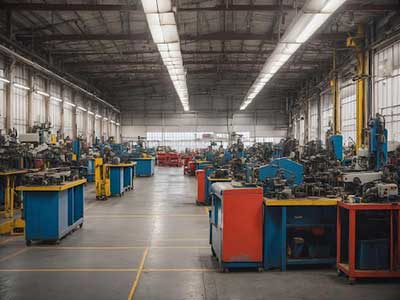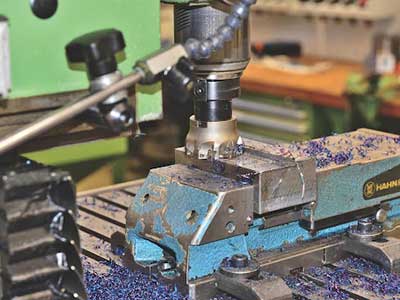 In today’s global economy, it’s nearly impossible to go a day without using a product that was made—or at least partially made—in China. From smartphones and power tools to furniture and fasteners, Chinese manufacturing plays a critical role in keeping the world supplied.
In today’s global economy, it’s nearly impossible to go a day without using a product that was made—or at least partially made—in China. From smartphones and power tools to furniture and fasteners, Chinese manufacturing plays a critical role in keeping the world supplied.
And yet, for many Americans, the question occasionally surfaces:
Is it unpatriotic to buy goods from China?
At Global Trade Specialists, we work closely with American businesses to source high-quality, cost-effective products from China. We believe this isn’t just compatible with American values—it supports them in meaningful ways.
Global Trade Isn’t Unpatriotic – It’s Necessary
Labeling international trade as “unpatriotic” misunderstands the way the modern economy works. American businesses import products to stay competitive, offer better prices to customers, and support domestic jobs in areas like retail, logistics, marketing, and service.
When a U.S. company sources from China, it doesn’t mean that American values are being ignored. It means the company is working to survive and thrive in a global market. In many cases, this kind of strategic sourcing allows small businesses to grow, hire more employees, and reinvest in their communities.

The Harsh Realities of U.S. Manufacturing
Even if, hypothetically, all the products we import were made by law to be made in the U.S. tomorrow, it wouldn’t be possible to domestically produce all goods here. For one, we already have a massive skill shortage. According to the St. Louis Federal Reserve, there are roughly half a million job openings for manufacturing jobs in the U.S. Some sources cite higher than 600,000 open positions. This means that we don’t have enough workers to fulfill the demand for work we currently have.
Consequently, companies in the United States must import products by necessity to fulfill demand.
In order to manufacture more products in America, we need more workers skilled in manufacturing. That’s another huge hurdle to cross; convincing the youth that manufacturing is a worthwhile career to pursue. To do that, there needs to be a cultural shift in public opinion towards the manufacturing industry as a career, and not just “Made in America” being the better option to buy from.
Most people are supportive of U.S. manufacturing, but don’t want to engage in the field themselves, and in a survey conducted by the CATO Institute, manufacturing work is cited as “noisy, repetitive and isolating” . This is going to be increasingly true as robotics and automation develop and remove the need for physical workers.
 It used to be after World War 2 up through the 70’s you could raise a family and have a house off a single factory job. Those days are long in the past, and manufacturing wages have dropped precipitously when you account for inflation and the rising cost of living. As a result, so too has the amount of U.S. manufacturers.
It used to be after World War 2 up through the 70’s you could raise a family and have a house off a single factory job. Those days are long in the past, and manufacturing wages have dropped precipitously when you account for inflation and the rising cost of living. As a result, so too has the amount of U.S. manufacturers.
The current average wage for manufacturing jobs is roughly $18.00-25.00 per hour. That may not sound terrible for a first job, but no one is going to want to earn that pay for a career, let alone shoulder potential requirements of schooling or education needed to get that job. Higher skilled manufacturer workers can earn around $40.00 or more if they work in the government sector or aircraft industry, but these jobs aren’t as common.
This is of course the average, jobs like welding will earn more than your average sawmill operator for example.
 Naturally, if wages are increased, companies will offset that cost on the customer. Products will become more expensive, and with domestic products already costing 3-5x more than many imported products, customers aren’t going to eat the costs.
Naturally, if wages are increased, companies will offset that cost on the customer. Products will become more expensive, and with domestic products already costing 3-5x more than many imported products, customers aren’t going to eat the costs.
As a result, this means that unless the entire economic framework shifts back to it was in the 70’s or even 80’s, it’s going to be nearly impossible to shoehorn a solution to get more products made in the U.S. to meet consumer demands.
Over time, automation will catch up and solve both the demand and labor cost problem. Eventually the costs will be cheaper to buy American made products than from overseas, and it is at this point that we’ll see more of a shift to “Made in America”, which will probably happen in the next 1-2 decades.

Many “American-Made” Products Include Foreign Parts
It’s easy to assume that “Made in the USA” means a product is 100% American—but that’s rarely the case. Many American manufacturers import components, materials, or sub-assemblies from countries like China, Taiwan, or Vietnam before completing final assembly here.
In other words, global trade is baked into the supply chain, even for products labeled “Made in the USA.” That collaboration isn’t a betrayal of patriotism—it’s a reflection of economic reality.
The Real Test of Patriotism Is Value Creation
 At Global Trade Specialists, we help American businesses create real value: higher margins, better quality, improved lead times, and dependable supply chains. That’s how companies grow. And when American companies grow, they hire locally, pay taxes, and fuel the economy.
At Global Trade Specialists, we help American businesses create real value: higher margins, better quality, improved lead times, and dependable supply chains. That’s how companies grow. And when American companies grow, they hire locally, pay taxes, and fuel the economy.
What’s more patriotic than helping U.S. businesses thrive?
Ethical Sourcing Is Always the Right Question
Rather than asking whether buying from China is unpatriotic, a better question might be: Is this product being sourced ethically, reliably, and responsibly? We take great care to vet our Chinese suppliers thoroughly for quality, reliability, and business integrity.
We believe in partnerships that are built on trust, no matter the country.
Patriotism isn’t about isolating ourselves from the rest of the world, it’s about creating prosperity and opportunity at home. Smart, responsible sourcing from China helps American companies do just that.
So no, buying from China is not unpatriotic. In many cases, it’s good business. And good business builds strong communities, a stronger economy, and a stronger country.
